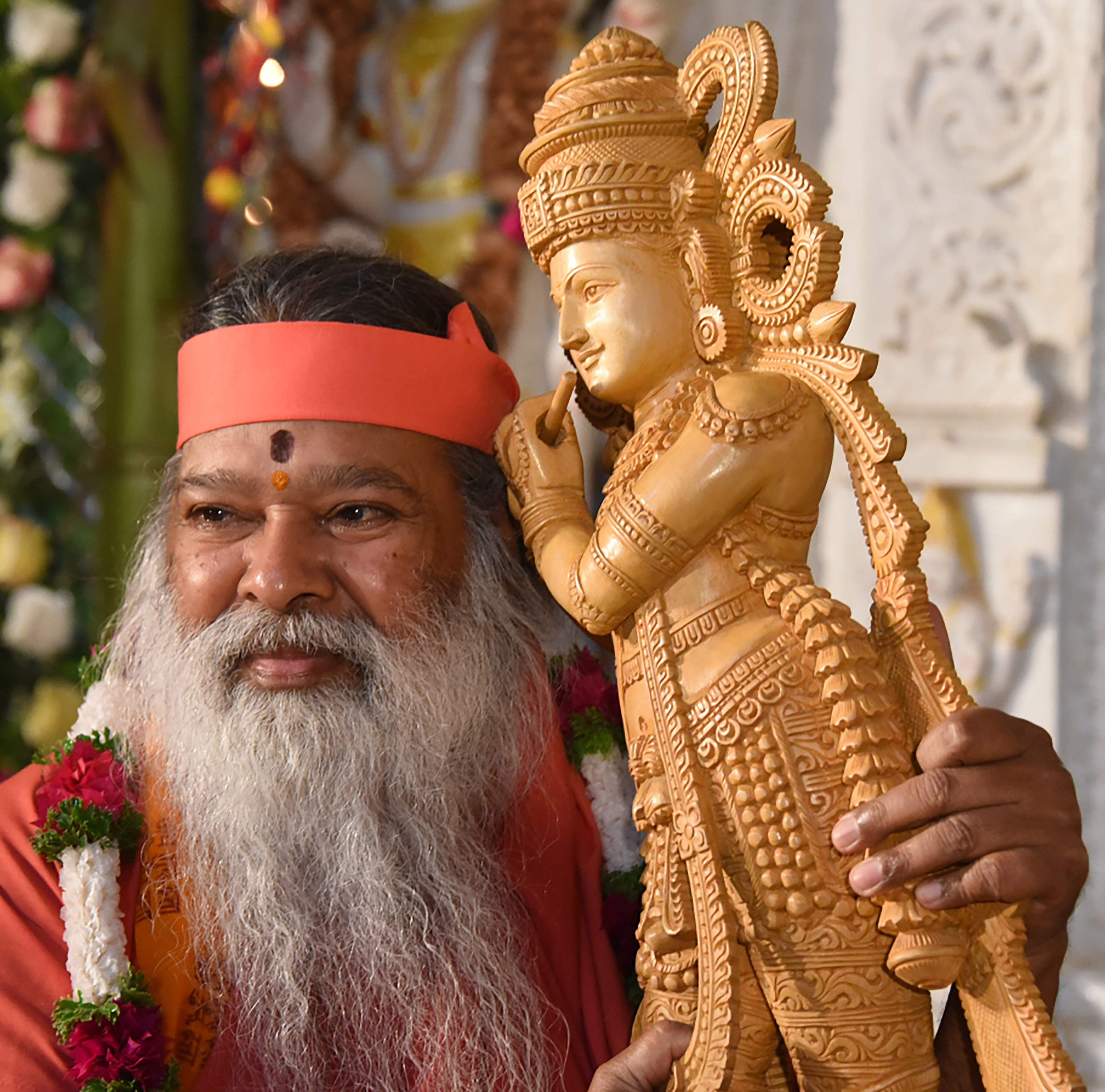

At the start of the Dharma Yuddha (righteous war) between Pandavas and Kauravas, Arjuna is filled with moral dilemma and despair about the violence and death the war will cause in the battle against his own kin. The Gita is set in a narrative framework of a dialogue between Pandava prince Arjuna and his guide and charioteer Krishna, the Supreme Personality of Godhead. It is considered to be one of the holy scriptures for Hinduism. The eighteen chapters of the Bhagavad Gita are classified as ‘Yogas’, starting with the ‘yoga’ of Arjuna’s depression and ending with the Yoga of ‘liberation through renunciation’.The Shrimad Bhagavad Gita ( / ˌ b ʌ ɡ ə v ə d ˈ ɡ iː t ɑː/ Sanskrit: श्रीमद्भगवद्गीता, romanized: śrīmadbhagavadgītā, lit.'The Song by God' ), often referred to as the Gita ( IAST: gītā), is a 700- verse Hindu scripture that is part of the epic Mahabharata (chapters 23–40 of book 6 of the Mahabharata called the Bhishma Parva), dated to the second half of the first millennium BCE and is typical of the Hindu synthesis. This dialogue between Krishna and Arjuna, is the Bhagavad Gita. Krishna talked to him, helping him to examine his own motives and desires, and showing him ways to rise above the limitations of his own personality to do what was best for himself and good for society. In his confusion, he no longer knew the course of action that he should take, and he turned to Krishna for guidance. At this crucial moment, Arjuna’s attachment to his preceptors and family came to the fore, and doubt entered his mind as to the ‘rightness’ of the battle. In the enemy ranks, Arjuna saw his cousins, other relatives and his teachers. Just before the fighting commenced, Arjuna asked Krishna to place his chariot between the two armies, so that he could take a good look at his enemy.

Krishna agreed to drive Arjuna’s chariot and thus to be with him throughout the battle. Arjuna chose to have Krishna with him, and Duryodhana was delighted to add the vast, skilled army of Krishna to his forces. Krishna said that he would not personally lift weapons and fight in the battle, but the cousins could choose to have him, unarmed, on their side, or to have the use of his large army. Before the battle began, both Duryodhana and Arjuna went to Krishna to seek his aid. After making all possible attempts to peacefully get back their kingdom, or even the right to own a mere five villages in the kingdom, the Pandava brothers decided to fight a war to gain justice.Īrjuna, the third of the five Pandava princes, was perhaps the greatest and most renowned warrior-hero in the Pandava army. The army mustered by the five Pandava brothers was to fight the battle against the army of the Pandava’s cousin, Duryodhana, who had robbed them (the Pandavas) of their rightful kingdom and further, refused to participate in any plans for a compromise. The Bhagavad Gita occurs just before the great battle of Mahabharata begins. It is one of the best-known philosophical texts of Hinduism, and is said to contain the essence of Upanishadic thought.

The Bhagavad Gita is composed of 701 Shlokas (verses) arranged in 18 chapters. This dialogue takes place in the Bhishma Parva of the Mahabharata. The Bhagavad Gita, or the Song of the Lord, is a dialogue between Krishna, an incarnation of Vishnu, and his friend and disciple, Arjuna.


 0 kommentar(er)
0 kommentar(er)
